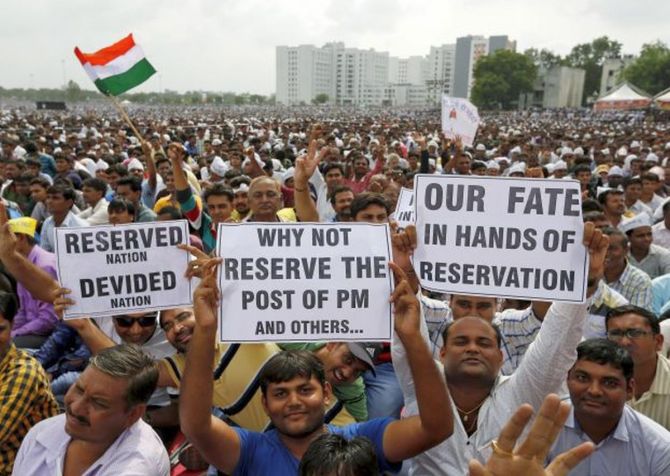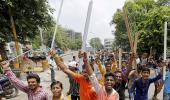The Patna high court on Thursday set aside the amended reservation laws in Bihar, which enabled the Nitish Kumar government to hike quotas for Dalits, tribals and backward classes from 50 per cent to 65 per cent.

A division bench comprising Chief Justice K Vinod Chandran and Justice Harish Kumar declared the amendments, passed unanimously by the state's bicameral legislature in November last year, as “ultra vires” of the Constitution, “bad in law” and “violative of the equality clause”.
The court also allowed a bunch of petitions challenging the Bihar Reservation of Vacancies in Posts and Services (for Scheduled Castes, Scheduled Tribes and Backward Classes) Act, 2023, and the Bihar Reservation (in admission to educational institutions) Amendment Act, 2023, while “leaving the parties to suffer their respective costs”.
The verdict, which came out more than three months after the court had reserved its judgement, triggered a slugfest in the state where politics has centred around the emotive issue of reservations, especially since the Mandal wave of the 1990s.
State BJP president and Deputy CM Samrat Choudhary declared that his party was “fully in support” of the hike in reservations, and the high court order will be challenged before the Supreme Court after consultation with legal experts.
RJD leader Tejashwi Yadav accused the saffron party of being opposed to reservations and urged the chief minister to put pressure on the Narendra Modi government at the Centre for placing in ninth schedule of the Constitution the state's reservation laws, which would protect the legislations from judicial scrutiny.
In the detailed order running into 87 pages, the court made it clear that it saw “no extenuating circumstance enabling the state to breach” the 50 per cent cap on reservations laid down by the Supreme Court in the famous Indra Sawhney case.
“The state proceeded on the mere proportion of population of different categories as against their numerical representation in government services and educational institutions,” the bench pointed out.
The amendments had followed a caste survey, which put the percentage of Other Backward Classes and Extremely Backward Classes at a staggering 63 per cent of the state's total population, while SCs and STs were stated to have accounted for more than 21 per cent.
The exercise was undertaken by the state government after the Centre expressed its inability to undertake a fresh headcount of castes other than SCs and STs, which was last held as part of the 1931 Census.
After the quotas were hiked vide a gazette notification that followed the legislations, reserved seats in the state, including those for the economically weaker sections, came to be 75 per cent of the total.
The survey and the ensuing hike in quotas had triggered a nationwide buzz and prompted the Congress, then a junior alliance partner in the state's ruling ‘Mahagathbandhan', to promise a countrywide caste census followed by a similar affirmative action.
However, the court was of the view that the state “attempted no in-depth study or analysis before providing for enhancement of reservation”, and “after the collection of data” in the survey, “there was a frog leap into the amendment”.











 © 2025
© 2025